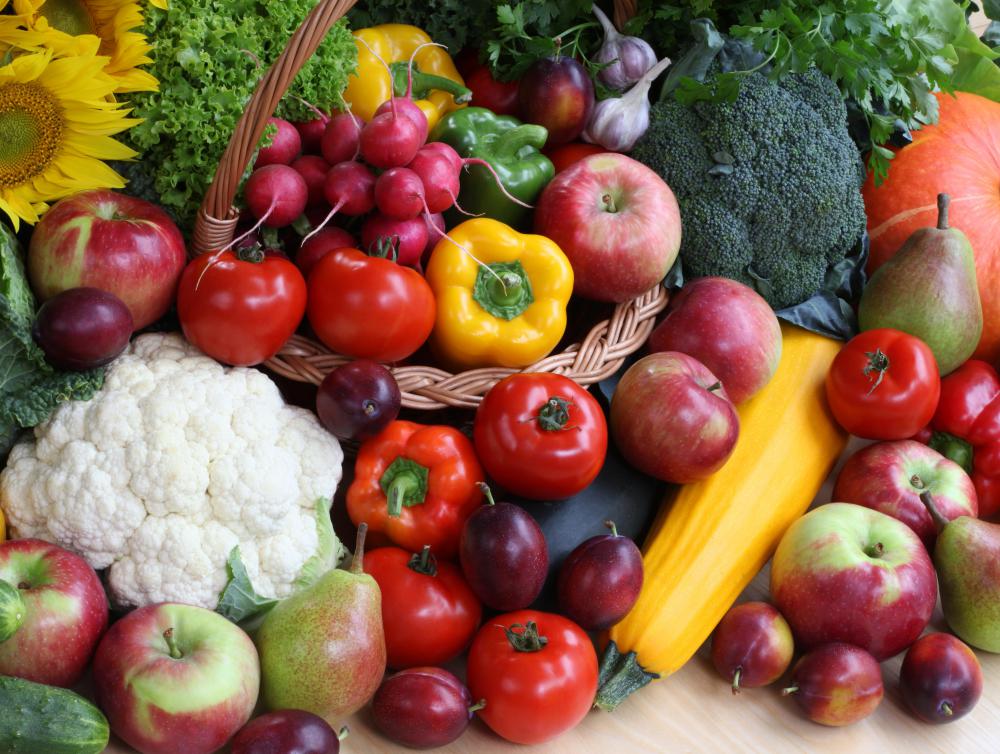At WiseGEEK, we're committed to delivering accurate, trustworthy information. Our expert-authored content is rigorously fact-checked and sourced from credible authorities. Discover how we uphold the highest standards in providing you with reliable knowledge.
Are Sulfites in Food Dangerous?
Sulfites have been used in various forms for centuries to assist with the preservation of foods such as dried fruits, meats, and wines. Some consumers are concerned about their presence in food because they are not regulated by the most government organizations and some people do have adverse reactions to them. Because they are considered a food additive rather than an ingredient, regulatory organizations such as the United States Food and Drug Administration (FDA), require minimal labeling of foods that contain sulfites.
According to the FDA, approximately one in 100 people is sensitive to sulfites in food. The majority of these individuals are asthmatic, suggesting a link between the condition and the addititve. Individuals who are sulfite sensitive may experience headaches, breathing problems, and rashes. In severe cases, they can actually cause death by closing down the airway altogether, leading to cardiac arrest.

Unfortunately for the sulfite sensitive, a dizzying array of foods have them added, in addition to those which may be naturally occurring. Wine and dried fruit are the two biggest culprits, but sulfites can also be found on vegetables and seafood. In most cases, a restaurant or grocery store will not know about the sulfite content of the food it sells, and therefore have difficulty assisting consumers with identifying potentially dangerous foods. There are some companies that target people who are sensitive to this additive, offering foods that are guaranteed to be sulfite free.

Wine is the food most people associate with sulfites, because it has longer stability and shelf life when they are added. The fermentation process of wine also produces sulfites, so no wine can be truly sulfite-free. Organic wines must be produced without additional additives, but for the sulfite sensitive, this does not eliminate the risk. Other foods such as dried fruit are sometimes sold in an “unsulfered” version, which means that they were produced without sulfites. Unsulfered dried fruit tends to be dull in color, and has a shorter shelf life, although it tastes just as good.

Sulfites in food are not dangerous for most of the population, although they can lead to discomfort in large amounts. Asthmatics should try to be careful with foods that may contain them, and anyone who visits a medical professional because of an allergic reaction should make sure to detail what he or she has eaten in the previous 24 hours. Most violent reactions to sulfites happen within an hour of consuming them, but it is better to err on the side of detail when it comes to allergies.
AS FEATURED ON:
AS FEATURED ON:














Discussion Comments
@ Alchemy- Your question about sulfites in organic foods is a tricky one. The USDA regulates organic labeling, and has three tiers of "organic".
Certified organic must contain 100 percent organic ingredients besides water and salt. Manufacturers must produce and grow certified organic foods at facilities that hold USDA certifications.
Foods manufacturers label organic must contain 95% organic materials and no added sulfites. Manufacturers can use sulfites to process the other five percent of ingredients, as long as the manufacturer does not add the ingredients to the product as a preservative.
For the USDA to consider a product organically made, the product must contain 70 percent organic product. Besides the percentage of organic products, requirements are the same as "organic" products. These products can contain things like caramel color, which use sulfites in their production.
@ Amphibious54- The FDA also has labeling guidelines for preserved foods. While food manufacturers do not have to label minimal use of sulfites, they must label food items when the sulfite concentration is above 10 parts per million.
Are there any foods that do not use sulfites? It seems like besides fruit and vegetables made for immediate consumption, almost everything in a grocery store contains sulfites. How can something so prevalent in our food be so poorly regulated? In addition, can organic foods contain sulfites?
I was able to find some information about the extent that the FDA regulates sulfites in food. The FDA minimally regulates sulfites, as the article states, but the FDA bans sulfite use in certain fruits and vegetables.
The FDA only allows farmers to spray sulfites on foods that consumers cook. Fruits and vegetables that are normally consumed raw must not contain sulfites. There is one exception to this rule. Farmers can spray grapes with sulfites to prevent fungus growth.
The FDA also has labeling guidelines for preserved foods. While food manufacturers do not have to label minimal use of sulfites, they must label food items when the sulfite concentration is above 10 parts per million.
Post your comments